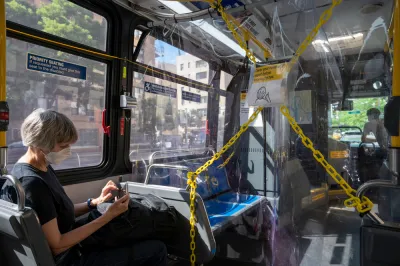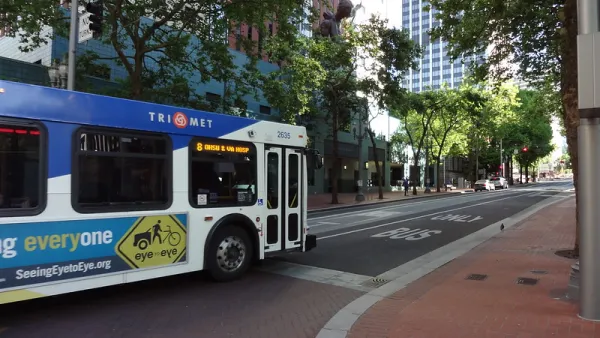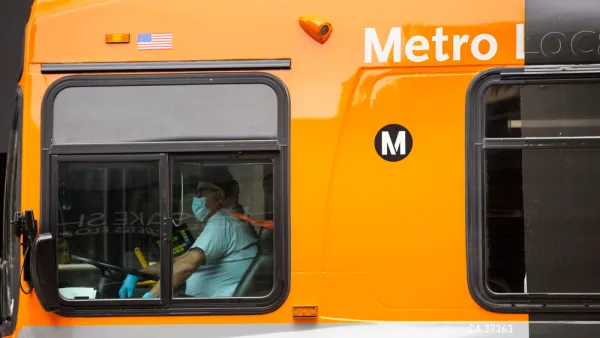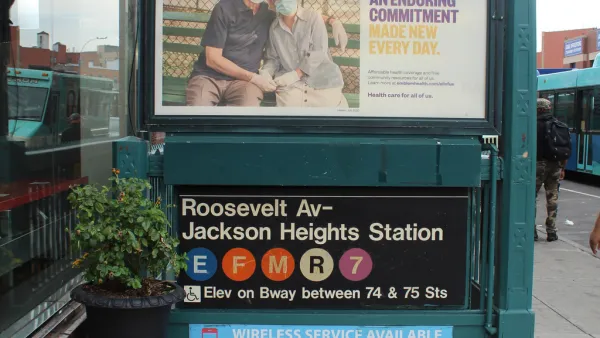A group of 12 leading transit experts debriefed on the consequences of the pandemic for public transit, and proposed a future that centers public transit as a tool for economic recovery and righting the past wrongs of the planning profession.

"Covid-19 wreaked havoc with America’s public transportation networks," writes Tanya Snyder to introduce the proceedings of a recent panel discussion between 12 leading transit experts on the future of public transit in the post-pandemic world.
"Empty buses and train cars were a good sign, at first, that people were heeding calls for social distancing," continues Snyder. "Within weeks, we realized that grocery employees and hospital workers, renamed “essential workers” and lauded as heroes, were struggling to get to work as the transit systems they relied on cut schedules. People found it hard to make essential trips and access medical care. It turned out that even during a lockdown, public transportation is the artery through which the lifeblood of cities flows."
The cultural and economic position of public transit evolved constantly during the pandemic, and the likelihood that the future of public transit is likely to be a source of political consternation and technological innovation inspired Politico to gather a panel of 12 leading transit advocates, planners, system designers, and government officials from around the world for a two-hour zoom discussion about the future of transit.
The discussion started with a recap of the major events and themes of transit during the pandemic (e.g., "widespread service cuts," disparate impacts, migration, disappearing rush hour, and "hub-and-spoke systems became obsolete"). The second part of the discussion focused on how to "future-proof" public transit for life after COVID. The subheadings of the part of the discussion are listed below, with more details provided in the source article:
- It's time to end transit red-lining
- Refocus on bus service
- Detangle jurisdictions
- Make driving worse
- Revamp data systems
FULL STORY: Policy Hackathon: Can public transit recover from Covid-19?

National Parks Layoffs Will Cause Communities to Lose Billions
Thousands of essential park workers were laid off this week, just before the busy spring break season.

Retro-silient?: America’s First “Eco-burb,” The Woodlands Turns 50
A master-planned community north of Houston offers lessons on green infrastructure and resilient design, but falls short of its founder’s lofty affordability and walkability goals.

Delivering for America Plan Will Downgrade Mail Service in at Least 49.5 Percent of Zip Codes
Republican and Democrat lawmakers criticize the plan for its disproportionate negative impact on rural communities.

Test News Post 1
This is a summary

Test News Headline 46
Test for the image on the front page.

Balancing Bombs and Butterflies: How the National Guard Protects a Rare Species
The National Guard at Fort Indiantown Gap uses GIS technology and land management strategies to balance military training with conservation efforts, ensuring the survival of the rare eastern regal fritillary butterfly.
Urban Design for Planners 1: Software Tools
This six-course series explores essential urban design concepts using open source software and equips planners with the tools they need to participate fully in the urban design process.
Planning for Universal Design
Learn the tools for implementing Universal Design in planning regulations.
EMC Planning Group, Inc.
Planetizen
Planetizen
Mpact (formerly Rail~Volution)
Great Falls Development Authority, Inc.
HUDs Office of Policy Development and Research
NYU Wagner Graduate School of Public Service





























